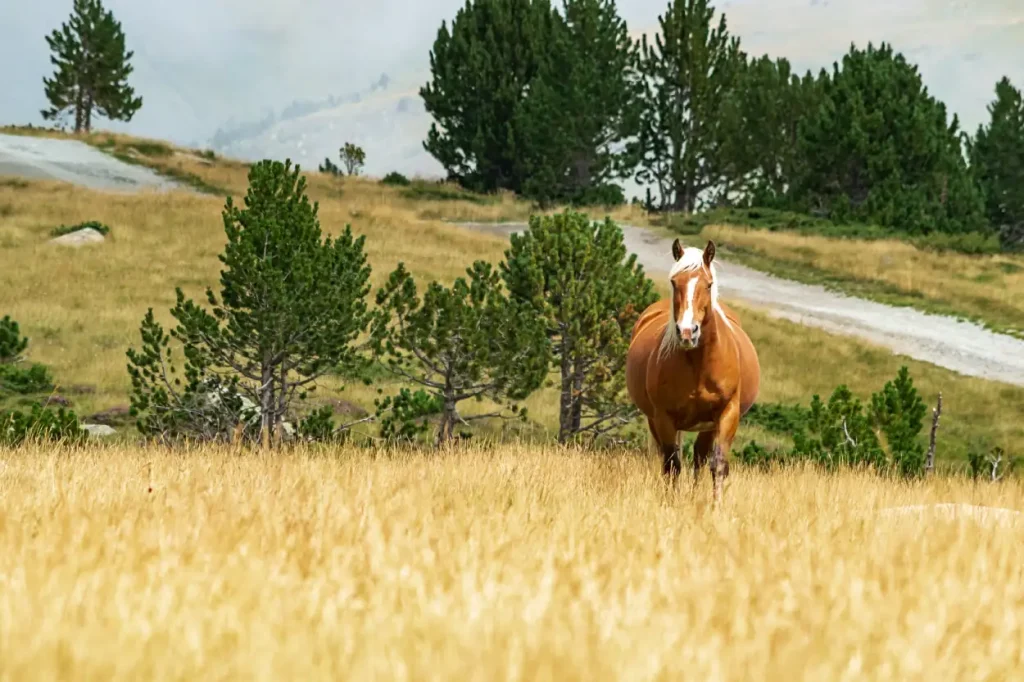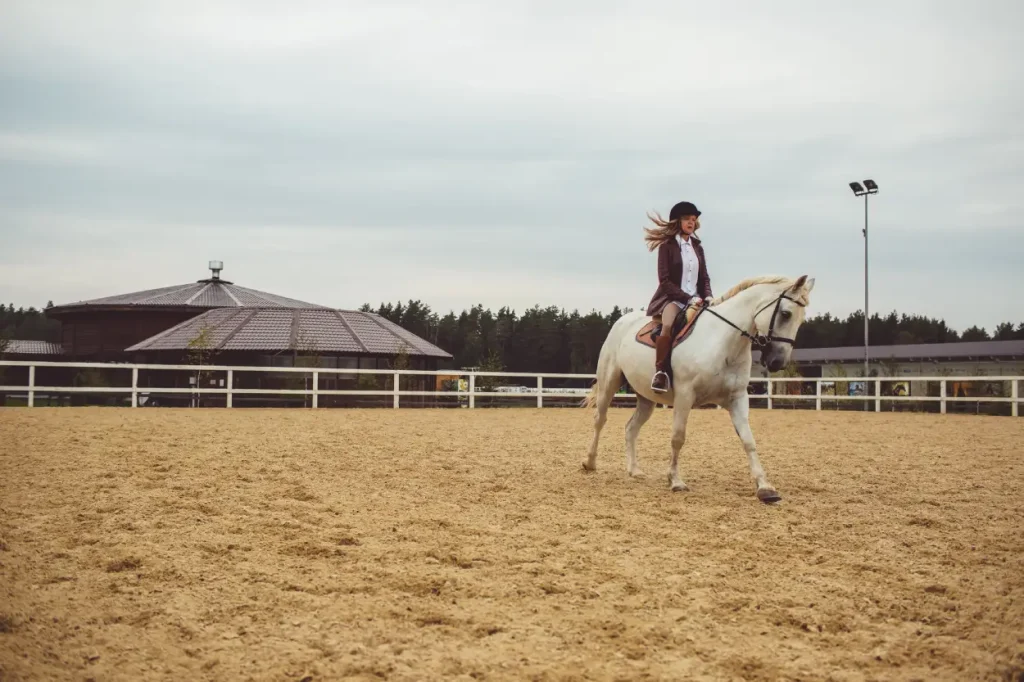
Owning a horse is a common dream for many people, but it also comes with significant considerations, especially when it comes to the property you’ll need. Whether you’re a seasoned equestrian or a first-time owner, choosing the right property can make a world of difference in the well-being of your horse and your own convenience.
In this guide, we’ll explore essential property tips if you’re planning to own a horse, helping you make informed decisions to create a safe and comfortable environment for your equine companion.
Is Buying Property Worth It for Horse Owners?
Investing in a property for your horse can be highly beneficial for horse owners. It provides stability, ensures you have full control over the facilities, and allows for customization to meet your specific needs. Moreover, owning a horse property can also be a solid long-term investment, depending on the location and amenities available.
However, buying horse property also entails significant responsibilities and expenses. These include ongoing maintenance, compliance with zoning regulations, and initial setup costs. It’s essential to carefully assess these factors with the guidance of a real estate broker to determine if buying property aligns with your goals and financial plans.
Property Tips if You’re Planning to Own a Horse: 8 Essential Considerations
Owning a horse property involves more than just finding a suitable piece of land; it requires careful planning and consideration of various factors to guarantee the well-being of your horses and your own satisfaction as an owner. Below, we tackle eight crucial property tips if you’re planning to own a horse, guiding you in selecting and setting up your ideal equestrian property:
1. Location and Zoning Regulations
The location of your horse property is critical for several reasons. Firstly, you need to ensure it’s situated in an area that allows for horse ownership and activities. Zoning regulations can vary significantly between municipalities, so it’s essential to check local ordinances to confirm that keeping horses is permitted and understand any specific requirements or restrictions.
Additionally, consider proximity to equestrian facilities such as trails, arenas, and veterinary services. Access to these amenities can enhance your experience as a horse owner and provide opportunities for training, recreation, and healthcare for your horses.
2. Acreage and Space Requirements
Horses require ample space to move freely, graze, and exercise. The size of the property you’ll need depends on several factors, including the number of horses you plan to keep and their specific needs. A general guideline is to allow for at least one to two acres of pasture per horse, although this can vary based on local regulations and the availability of supplemental feed.
In addition to grazing space, consider the layout of the property. Ensure there are suitable areas for riding and training, as well as enough room for barns, paddocks, and other necessary facilities without overcrowding.
3. Barn and Shelter Facilities
A well-designed barn or shelter is essential for providing protection from the elements and a comfortable resting place for your horses. When evaluating barn facilities, consider factors such as size, layout, ventilation, and accessibility. The barn should accommodate all your horses comfortably, offer storage space for feed and equipment, and allow for easy cleaning and maintenance. Depending on your climate, you may also need to consider heating, cooling, or insulation options to make sure your horses remain comfortable year-round.
4. Fencing and Pasture Management
Secure fencing is essential for maintaining the safety and well-being of your horses. Different types of fencing have varying levels of durability, safety, and maintenance requirements, so choose a fencing material that suits your needs and budget. Common options include wooden board, wire mesh, and electric fencing, each with its advantages and considerations.
Implementing a pasture management plan is also crucial for maintaining healthy grazing areas and preventing overgrazing. Rotational grazing, where horses are periodically moved between different pastures, can help maintain pasture health and reduce the risk of nutrient depletion and soil erosion.
5. Water Supply and Drainage
Access to clean water is vital for horses’ health and well-being. Be sure your property has a reliable water supply system that can accommodate the needs of both your horses and other facilities, such as barns and paddocks. Consider installing automatic waterers or troughs in paddocks and pastures to ensure a consistent water supply and reduce maintenance requirements.
Proper drainage is equally important to prevent mud buildup and maintain a dry, sanitary environment for your horses. Evaluate the property’s natural drainage patterns and consider implementing grading or drainage systems to manage rainwater runoff effectively.
6. Accessibility and Transportation
Consider the accessibility of the property, especially if you plan to participate in equestrian activities or competitions. Easy access to trails, arenas, and other equestrian facilities can enhance your horse ownership experience and provide opportunities for training and recreation.
Evaluate transportation options, including proximity to major roads and highways, to guarantee convenient access year-round. Adequate parking and maneuvering space for trailers and vehicles should also be considered if you frequently transport your horses for shows, trail rides, or veterinary appointments.
7. Storage and Equipment
Adequate storage space for feed, hay, bedding, and equipment is essential for efficient horse care and property maintenance. Evaluate existing storage facilities on the property or plan for additional structures, such as hay barns or equipment sheds, to accommodate your storage needs without overcrowding the barn or living areas.
Organize storage areas to ensure easy access to supplies and equipment while minimizing the risk of pests or moisture damage. Consider incorporating storage solutions that promote ventilation and protect feed and equipment from weather extremes.
8. Local Regulations and Community Considerations
Research local regulations and community dynamics related to horse ownership and property maintenance. Grasp any specific requirements or restrictions related to keeping horses, such as noise ordinances, waste disposal regulations, or restrictions on grazing areas. Engaging with the local equestrian community can provide valuable insights into neighborhood dynamics, potential support networks, and opportunities for recreational activities.
Frequently Asked Questions

How can I determine the right size of a horse property?
The size of a horse property depends on how many horses you have, their grazing needs, and local rules. As a general guideline, allocate at least one to two acres of pasture per horse. Consider additional space needs for barns, paddocks, riding arenas, and other facilities. It’s best to have a real estate broker to help navigate these considerations and find a property that meets your specific requirements.
Can I convert the existing property into a horse-friendly environment?
Yes, you can transform existing property into a horse-friendly environment. Start by checking if local rules allow horses. Then, add secure fences for paddocks or pastures. Build shelters like sheds or barns for weather protection. Make sure there’s enough water and grazing space. Get advice from an expert to make the property safe and comfy for horses.
How do you prepare the ground for horses?
To get the ground ready for horses, begin by clearing out any rocks or harmful plants. Check the soil and drainage to ensure it’s healthy and mud-free. Add gravel or sand in high-traffic spots like gates to improve traction. Rotate where horses graze to keep the grass lush. Regularly fertilize, aerate, and manage weeds to maintain a thriving pasture. If you’re searching for the right property, a real estate broker can assist in finding places with suitable grounds for your horses.
Conclusion
Owning a horse property requires careful planning and consideration of various factors to guarantee the well-being of your horses and your own satisfaction as an owner. By following these eight property tips, if you’re planning to own a horse, you can make informed decisions that create a safe, comfortable, and enjoyable environment for both yourself and your horses.
For more information on finding the perfect horse property, contact 3D Real Estate, where our experts can help you navigate the complexities of horse property ownership and find your ideal equestrian haven. Reach out to us now!




